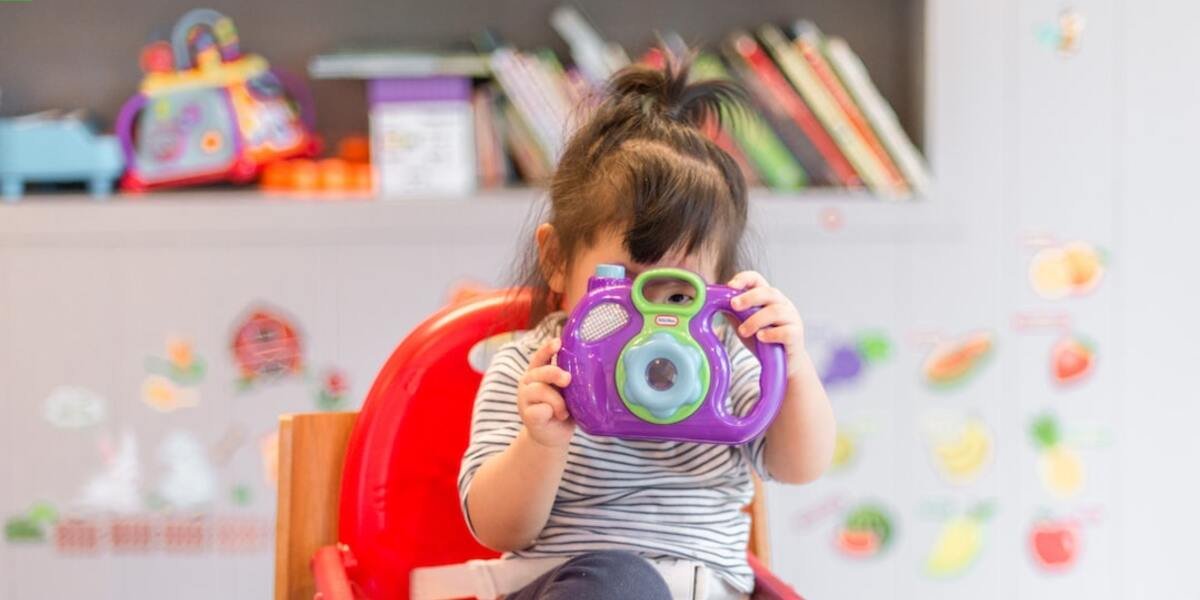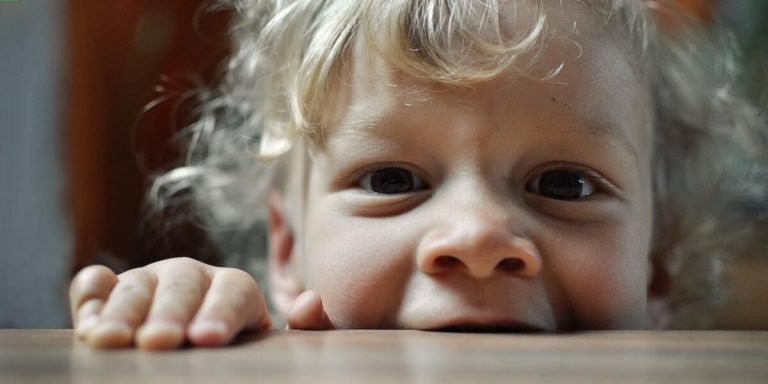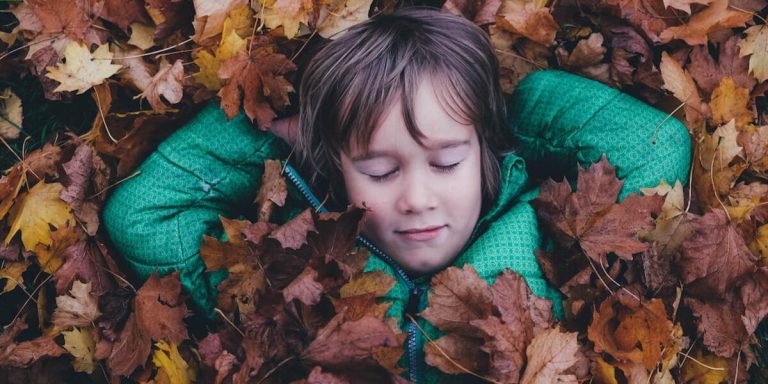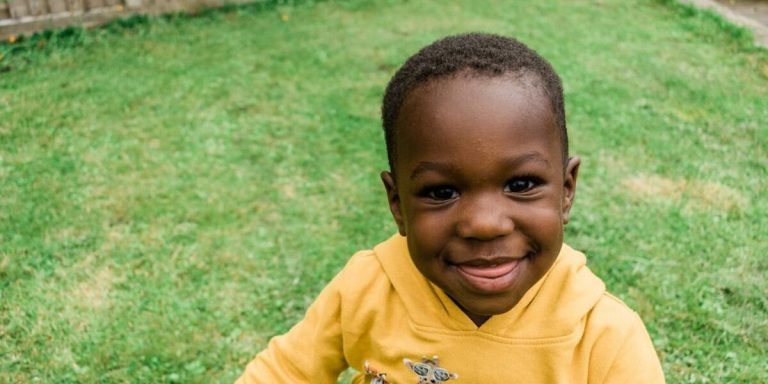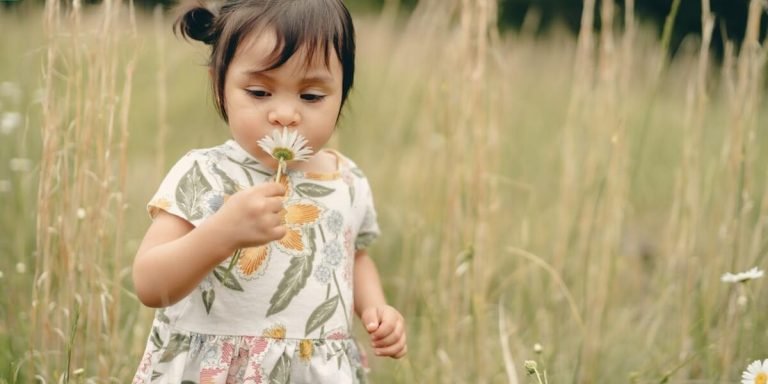Activities for Toddlers to Encourage Learning and Development at Home
Encouraging your toddler’s learning and development doesn’t necessarily require fancy toys or intensive academic programs. Often, the most effective strategies are those that come disguised as playtime. One of these is engaging them with straightforward yet educative “activities for toddlers”.
These activities not just enhance their physical abilities but also support cognitive growth, language skills and emotional regulation.
These playful experiences can be introduced right at home to instill a love for learning while fostering essential developmental milestones early in life. This blog post will explore an array of creative ideas tailored to various aspects of growing up healthy – all through fun-filled tasks! It intends to provide a roadmap on how parents could turn seemingly ordinary moments into opportunities that contribute significantly towards holistic childhood education.
Did you know?
Surprisingly, a study published in Pediatrics found that toddlers who partake in interactive reading activities at home exhibited better cognitive development and increased comprehension skills later in preschool.
Understanding the Impact of Play-Based Learning for Toddlers
In the realm of early childhood education, play-based learning has gained a significant place as it comes with numerous benefits for toddlers. Using fun activities captivates young minds and aids in their educational development, serving as an effective teaching tool that goes beyond conventional methods. In this digital age where gadgets have rapidly become common babysitters, reintroducing traditional play can stimulate creativity and infuse joy into the learning journey.
Activities designed to educate while entertaining offer toddlers an absorbing way to discover new concepts. They engage both physically and cognitively which enhances their overall growth – from developing gross motor skills through running or jumping games to nurturing fine motor abilities using art crafts or puzzles – all these contribute significantly towards promoting holistic development.
Fostering essential life skills, such as problem-solving ability, resilience in the face of difficulties, and teamwork spirit, is equally important alongside academic achievements. Structured classroom settings may struggle to instill these qualities effectively at times. Play-based learning beautifully bridges this gap by offering real-life scenarios in a controlled yet natural environment where kids learn through play.
The next time your toddler digs in the mud making pretend-cakes or pulls out every toy to create stellar wars, avoid interrupting hastily. He’s busy sharpening his future genius!
Key Elements in Structuring Play Activities to Promote Development
Engaging in play-based learning activities for toddlers can significantly impact their cognitive, social, and physical development. Therefore, it is crucial to structure these toddler activities strategically to improve their benefits substantially.
Firstly, ensure that each activity has a clear goal tailored towards specific developmental milestones. For instance, if we’re focusing on enhancing motor skills among toddlers through play-based activities; selecting games involving stacking blocks or coloring could be beneficial as they involve controlling hand and finger movements.
Secondly, versatility should be embedded into the selected exercises. Activities with multiple ways of engagement tend to cater better to individual learning styles and paces effectively stimulating different areas of brain growth concurrently. Utilizing building blocks can serve as an excellent example here – while one child may prefer constructing towers another might opt for creating patterns thus promoting both creativity and problem-solving capacities individually.
Thirdly, incorporating elements of fun is inherently essential when structuring any form of “play” . Ensuring participants are enjoying themselves not only boosts mood but also increases willingness to engage hence facilitating effective absorption of new knowledge gained during those sessions.
Further emphasis must be placed upon open-ended questions throughout these structured interactions- enabling children’s thought processes by encouraging them away from scripted responses deepening overall understanding leading eventually toward independent thinking which forms foundation stones of early childhood education itself!
Lastly determine scope for regular feedback within such frameworks because acknowledging good work done motivates youngsters fostering positive attitudes towards Learning – A key aspect imperative in successful future academic pursuits even beyond boundaries defined by preschool years alone!
Assessing Age-Appropriate Play Scenarios and Their Benefits
Play-based learning forms the cornerstone of early childhood education. With activities for toddlers grounding their initial experiences, it’s vital to understand how age-appropriate scenarios nurture young minds.
Initiating suitable tasks is an essential part of any successful play-based curriculum methodology. Often, educators worry about what may constitute as ‘age-appropriate’ when structuring these interactions for children under five years old.
Firstly, understanding that each child progresses at a different pace allows flexibility within this formula. Blending both structured lessons with imaginative free-play options accommodates various interests while retaining educational objectives in sight.
Recent pedagogical studies in 2023 have revealed popular age-specific exercises that promote positive cognitive development in young children.
– Purposeful Sorting: Offering toys or objects which vary in shape or color allow youngsters to visually identify differences thus stimulating pattern recognition.
– Book Exploration: Although literacy skills are limited at this stage; identifying images and relating them back to words encourages language acquisition growth spurts.
– Dexterity Challenges: Simple stacking blocks help fine-tune motor capabilities whilst encouraging spatial awareness concepts.
Integrating Sensory Experiences into Toddler Activities
Integrating sensory experiences into toddler activities is key for their formative growth in these early years of life. In 2023, we find that children are increasingly exposed to digital platforms at a young age which can often minimize the exploration of their natural senses. However, it’s crucial not to overlook the importance and impact traditional hands-on practices have on aiding cognitive development.
Sensory experiences enable toddlers to engage with their environment much more vividly than any screen interaction ever could. Activities like playing in sand or water, squishing play dough through fingers or listening closely during outdoor explorations offer an immersive learning experience. It gives them an opportunity not only to learn about various shapes, textures and sounds but also helps build fine motor skills while stimulating curiosity.
As parents and educators navigating this era where rapid technological advancement affects even our youngest members of society, it becomes paramount that traditional interactive techniques aren’t lost amidst modern parenting tools or educational methods. By consciously incorporating tactile engagements alongside new-age teaching aids such as apps specially designed for children’s learning needs – one ensures comprehensive overall development enriched through diverse means rather than relying solely on digitized resources.
Tailoring Sensory Activities to Enhance Cognitive Growth
Sensory activities are an integral part of early childhood education. They not only engross toddlers in fun-filled play but also foster cognitive growth and development. Today, let’s delve into how we can tailor these “activities for toddlers” to enhance the sensory experiences.
Primarily, it’s crucial to understand that every activity should aim at stimulating all five senses – touch, sight, hearing, taste and smell. In doing so, children develop key skills such as problem-solving ability and critical thinking while engaging with their surroundings in a meaningful way.
1) Craft creative ‘Touch’ games: Exploring different textures through hands-on activities like playing with sand or clay helps understating object permanence better.
2) Promote visual learning: Use colorful toys or introduce art-related tasks using vibrant paints which refine eye-hand coordination as well as stimulate creativity.
3) Incorporate audio elements: From rhymes & rhythms music sessions to sound-oriented guessing games- listening exercises aid auditory memory enhancement significantly!
4) Discover tastes together!: Cook simple dishes alongside them introducing varied flavors; tasting new things aids language development by describing what they perceive on their pallets!
The Role of Environment in Stimulating the Senses
The environment plays a pivotal role in stimulating the senses and nurturing curiosity amongst toddlers. You can make simple modifications to your home or classroom setup by incorporating activities for toddlers that engage their five senses – touch, sight, sound, smell and taste.
Secondly Sight: Using vibrant materials like colorful toys, flashcards with pictures of animals or shapes helps enhance visual acuity among young learners in 2023. An attractive learning environment paves the way for active engagement!
Sound follows suit: Incorporate musical elements into playtime; this might mean introducing them to various instruments or just tapping rhythms on everyday objects! The exposure develops auditory awareness and cultivates appreciation for music early on.
Smell stirs up interest too! Introduce aromatic herbs into gardening activities- let kids sniff basil leaves when you plant seedlings together – it’s indeed sensory overload but of the best kind!
Lastly we include Taste : Bake cookies together! Baking not only introduces children to culinary delights but also gets them involved first-hand in stirring mixtures which allows them to enjoy nibbling baked goods later-on giving their buds a party-time!
Therefore integrating these sensory experiences through hands-on learning opportunities doesn’t have to be complicated nor expensive — often referred channelling what’s already around us differently.
Fostering Social Skills Through Group Interaction Exercises
Engaging toddlers in group interaction exercises is a crucial part of early childhood education. It assists kids to grasp fundamental social skills and build strong relationships as they grow up. In this digital age of 2023, where tablets and smartphones have become the preferred toys for most youngsters, guiding them towards more traditional forms of play can be an uphill task.
One mustn’t underestimate the importance of these activities for toddlers due to increasing screen time; it’s essential to understand that interactions with their peers will develop their emotional intelligence significantly compared to any app or online game available out there today. Group games like ‘Duck Duck Goose’ not only help instill cooperation but also teach young children about empathy by responding appropriately when others reveal emotions such as happiness or sadness during playtime.
Fostering Social Skills through group interaction isn’t just limited inside classroom walls either – outdoor playgrounds are another ideal platform! Here tasks can range from sharing swings on jungle gyms, taking turns down slides all aiding in understanding mutual respect among peers while enjoying physical activity at the same time too.
Remember every tiny step counts – each little conversation your toddler has with a friend helps him/her learn how dialogue works thereby enhancing communication abilities which are vital later on both personally and professionally across life’s spectrum!
So let us embrace our roles actively whether we’re parents or teachers keeping ourselves abreast updated research techniques involving child psychology & development because molding those formative years constructively right now would ensure shaping confident self-assured adults tomorrow!
Designing Collaborative Tasks That Encourage Emotional Development
In the field of early childhood education, great emphasis is put on designing activities that stimulate emotional development among toddlers. These tasks should ideally be collaborative in nature to best cultivate social skills through group interaction. As we navigate further into 2023, a renewed focus has been placed on this area of learning due to its proven impact on young minds.
1. **Role Play:** This activity encourages children to step out of their comfort zones and explore different emotions by mimicking various roles such as doctors, firefighters, or grocery store clerks – all within an environment where they feel safe and supported.
2. **Group Art Projects:** Another effective task involves working together to create a giant mural or sculpture. This gives rise not only creative expression but also cooperation and negotiation – fundamental pillars for fruitful relationships.
3. **Music & Movement Games**: Toddlers love music! By incorporating song-and-dance routines into playtimes allows them ample opportunities share delight with one another while understanding rhythm and synchronization.
4 .**Outdoor Activities**: Arrange games like tag or hide-n-seek can ignite feelings joy while teaching crucial lessons sharing space respecting others’ personal boundaries.
5 .**Storytelling Sessions**: Narrating stories featuring characters who demonstrate emotion regulation helps kids grasp concept empathy understand importance kindness compassion during interactions peers.
Methods for Guiding Positive Peer Interactions Among Young Children
Incorporating a variety of activities for toddlers can be an effective way to nurture their social skills. Keeping in mind the importance of formative years, early childhood education should pay special attention to fostering positive peer interactions among young children.
One potent method is through structured playdates. Planned informal gatherings provide a safe environment where youngsters can interact and learn about cooperative behavior. For instance, organizing age-appropriate games such as ‘Pass the Parcel’ or ‘Musical Chairs,’ allows children not only fun but also lessons on taking turns and sportsmanship.
Role-playing exercises are another enriching means to boost your child’s solidarity with peers while enhancing creativity simultaneously. Activities that involve pretend plays like running errands at toy grocery stores or treating sick toys in mini-clinics encourage communication and empathy towards others’ roles within society.
Group art projects offer opportunities for collaboration – masterpieces produced together help teach them sharing, cooperation, appreciation of different ideas which leads to respect diversity from tender ages itself! It might just start with hand painting mural sessions; however, it surely leaves lasting impressions leading into heartier friendships!
Lastly incorporating team-building outdoor adventures could stir wonders too- may it be treasure hunts around yards or simple gardening tasks – every shared experience invites healthy competition encouraging each individual’s growth yet understanding unity stronger than ever before!
Conclusion
Whether you are looking to ignite your toddler’s creativity, refine their motor skills or simply entertain them for a while at home, these “activities for toddlers” will surely serve the purpose. The beauty of early learning resides in everyday play and exploration; so remember – keep it fun, engaging and pressure-free.
Thank you for taking time out to read this post. We hope that you’ve found some value-adding insights from our suggested activities. Feel free to explore more child-friendly educational resources on our website designed specifically keeping parents and educators in mind.
After all an informed adult can mould a well-rounded child!

